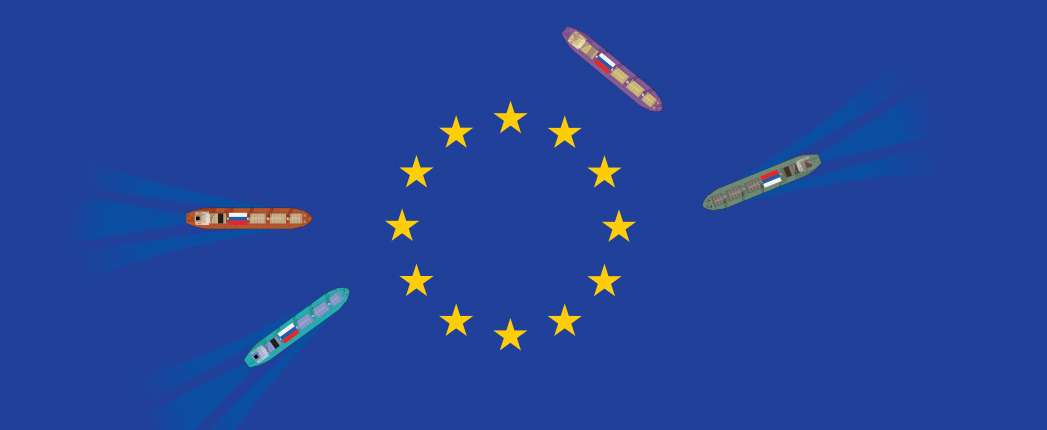
EU Ban on Russia
Because of the Russian invasion of Ukraine, the European Union and other allied states—United Kingdom, Switzerland, Norway and Sweden—have decided to prevent or limit Russian petroleum products and crude oil imports where possible into most EU countries and allied nations.
This action aims to cut sponsorship and funding of Russia’s war efforts. There will be difficult times ahead for many receivers of Russian products, including base oils. This will have specific effects on many blenders in Europe, along with traders who have purchased Russian export barrels for markets like West Africa, the Middle East, South America and India.
The United States has already imposed a hydrocarbon embargo, which includes Russian base oils.
The trade bans affect not only the direct incumbents of hydrocarbon trade but also shipping, insurance and financial transactions involved in the export of Russian products.
The EU foresees a varied phase-in period and several exemptions from the general ban on the “purchase, import or transfer, directly or indirectly, of crude oil or petroleum products” from Russia—as well as the prohibition on providing brokering and technical and financial assistance for the “transport, including through ship-to-ship transfers, to third countries of crude oil or petroleum products.”
The prohibitions do not normally apply for contracts concluded before June 4, 2022 and completed by Dec. 5, 2022 for crude contracts. Contracts for petroleum products including base oils can continue until Feb. 5, 2023 if concluded before June 4, 2022. The EU has agreed on an exemption for goods originating outside Russia that are “only being loaded in, departing from or transiting through Russia, provided that both the origin and the owner of those goods are non-Russian.”
The official journal also lists details of exemptions for Croatia, Czechia, Hungary and Slovakia as well as the possibility of sourcing Russian crude by pipeline if supply to a landlocked EU country is “interrupted for reasons outside the control of that member state.” The EU normally prohibits onward transfer, transport or resale of Russian crude or petroleum products delivered under the specific exemptions via pipeline to other EU or third countries.
Officials did not give an exact percentage of blended products that would be considered Russian and fall under sanctions. But the commission is working on technical guidance to ensure the “effectiveness of oil bans” and to ensure national authorities in each country perform necessary checks.
“We’re confident that this will have a major impact,” a senior official said. “Asians are quite worried. It’s not so easy to substitute.” The official noted that not all market operators will wait until the end of six months before halting business or terminating contracts with Russian suppliers.
The EU further confirms exclusion, from June 14, of Russia’s Sberbank, Credit Bank of Moscow and Russian Agricultural Bank from global financial messaging system Swift.
Operations have been finalized after several weeks of drawn-out negotiations, mostly stalled by Hungary. EU leaders on May 30 struck a compromise to ban seaborne imports of Russian oil by the end of the year but fell short of a full embargo. Under the compromise, the partial embargo will include oil and petroleum products but will allow a temporary exemption for crude delivered by pipeline into the four nations mentioned above.
This immediately covers more than a few oil imports from Russia, cutting a huge source of financing for its war machine. While it is acknowledged that base oils do not constitute a major part of Russian petroleum exports, there may also be repercussions for European base oil refiners who may have been dependent on Russian vacuum gas oil as feedstock.
EU ambassadors made the decision on June 1 to approve the oil embargo and the sixth Russia sanctions package. Nevertheless, the agreement falls short of the initial proposal by the European Commission, which envisioned banning all oil imports.
This was not agreed on due to fierce opposition from several EU countries that heavily rely on supplies of Russian oil via pipelines. However, those countries will only be able to accept Russian crude by pipeline. Other petroleum products, such as base oil, will be allowed to breach the sanctions.
Keeping pipelines out of any Russian oil embargo has been a key demand of Hungary, which feared a ban would put its economy at risk, as it imports 65% of its oil from Russia through the Druzhba pipeline. Along with Slovakia, Czechia and Croatia, Hungary has asked for an exception from the import ban.
Hungary’s blockage drew much criticism from other EU countries, particularly Poland, the Nordics and the Baltic States.
EU leaders did not agree on how long any exemptions of oil supplied via pipeline would last, with the final summit announcement stating they would “revert to the issue of the temporary exception for crude oil delivered by pipeline as soon as possible.”
Moreover, Hungary’s Prime Minister said he would seek guarantees that it could purchase crude oil by sea if Russian oil shipments stopped coming via pipeline. How this would be possible is unclear, although there is the possibility of using a pipeline via Croatia, which could eradicate the dependence on Russian crude.
Germany and Poland have committed themselves to a de facto shutdown of the northern Druzhba pipeline by the end of the year.
Several EU diplomats hinted that a seventh sanctions package could include the next steps toward a full oil ban and include pipeline-borne Russian oil.
Ray Masson is director of Pumacrown Ltd., a trader and broker of petroleum products in London, U.K. Send him comments or topic suggestions at pumacrown@email.com